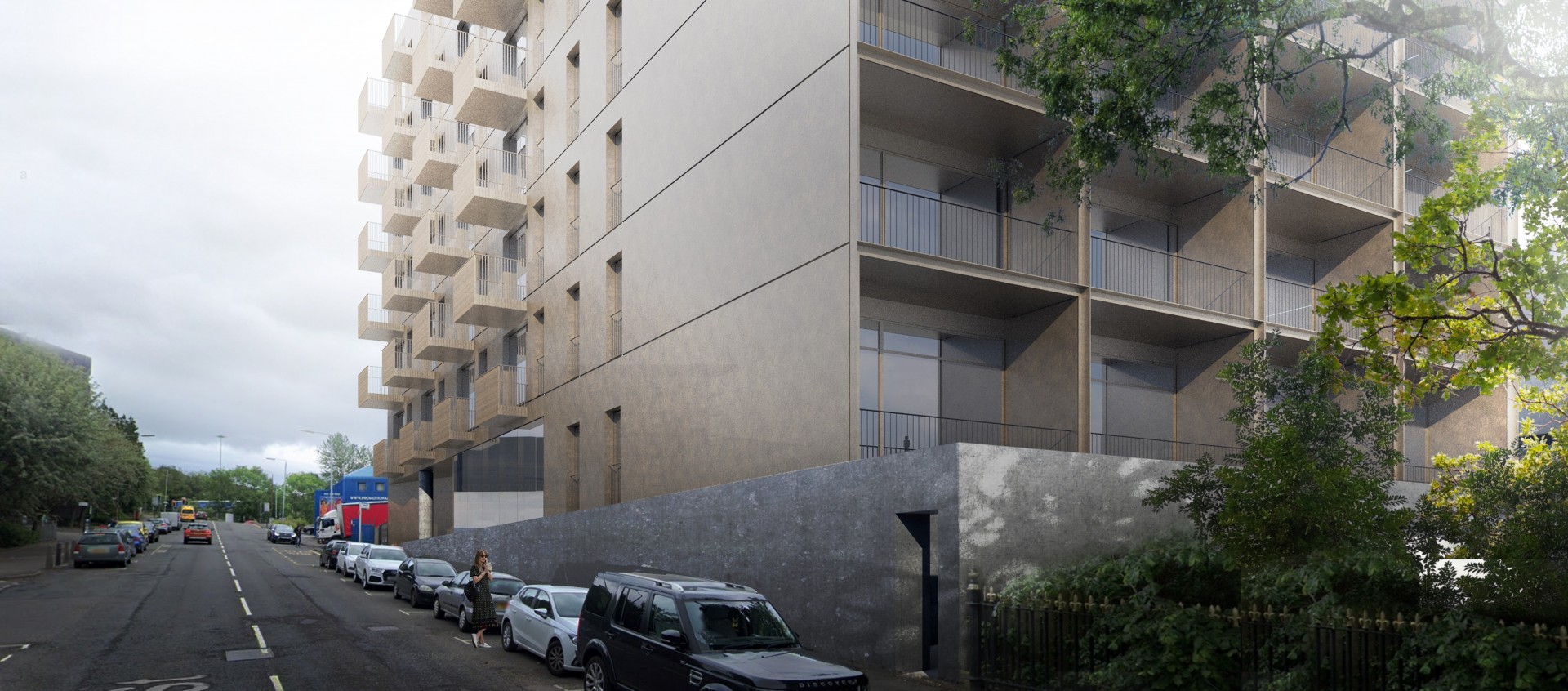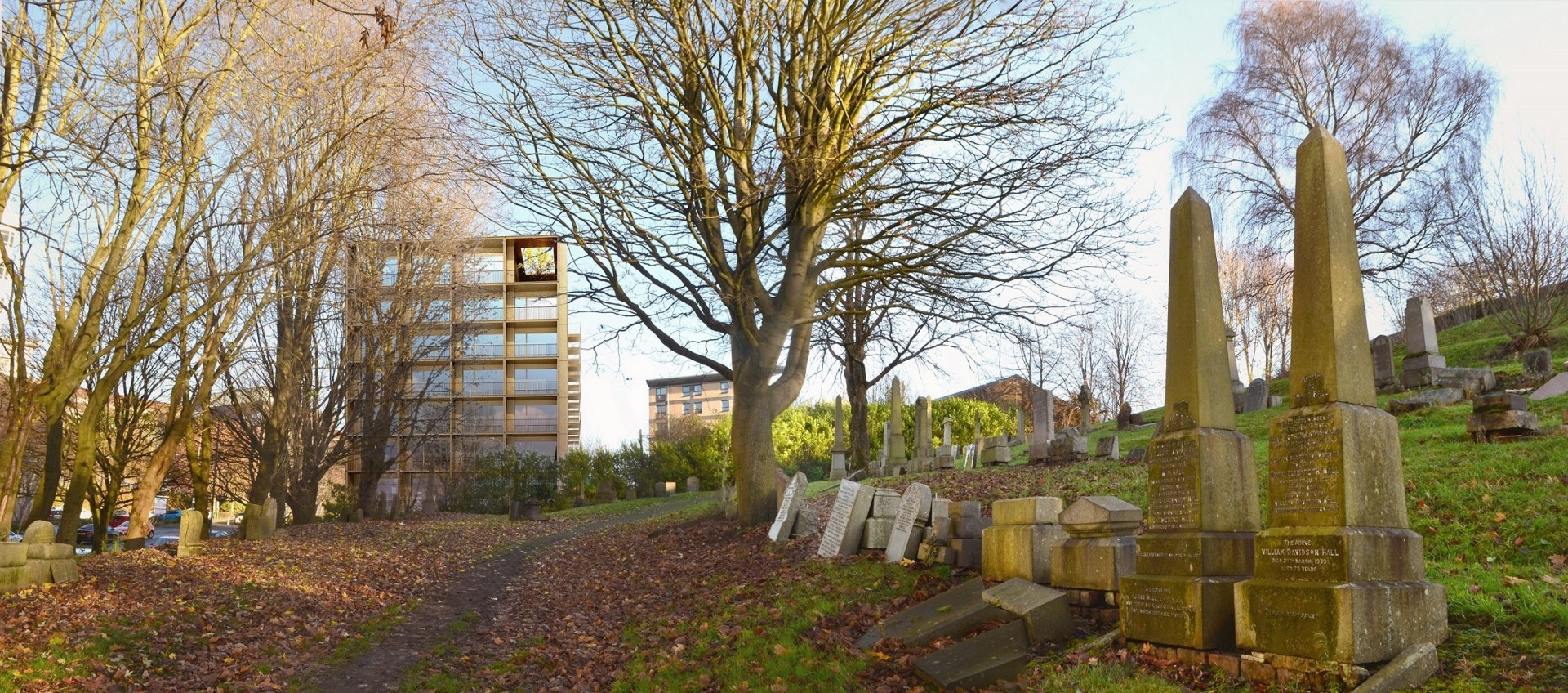Plans unveiled for 79 flats in Glasgow aimed at Royal Infirmary staff
Calmont Group has unveiled plans to build 79 apartments in a seven-storey build-to-rent block on Wishart street near Glasgow Royal Infirmary and the Necropolis cemetery.

Consultation has started ahead of a planning application being submitted to Glasgow City Council.
The flats would be mainly comprised of one-bed units along with a number of studio apartments and some larger two-bed corner flats, ReGlasgow reports.
Led by Elder & Cannon Architects, the key southern elevation will be generously glazed behind a frame of projecting balconies and a seventh-floor roof terrace will make the most of southerly views across the A-listed Necropolis, Urban Realm reports.
Amenity and co-working space would be provided on the ground floor and there would also be a roof terrace, landscaped gardens and extensive private balconies.
The development’s consultation website states: “This type of housing is intended to deliver much-needed affordable and flexible private rental flats, fully furnished and of varying lengths of tenancy and is particularly suited to the demographic of key workers in the hospital and to more general inner-city urban living.”

In a statement of design intent, Elder & Cannon wrote: “This plinth marries with the footpath levels at the north end where it also allows for a more generous arrival area under recessed cover as part of a sequence of approach at the principal entrance. It then extends along the public footpath as a raised planter at the base of the street elevation which is activated by the fully glazed wall of the social meeting space, and at the south end between the gable and the cemetery railing becomes a courtyard wall and discreet gate to the courtyard steps behind.
“The proposal will look to provide a strong formal response to its historic environment and attempt to mediate as an object building belonging to the street level and contributing to the everyday life of the city and its urban form while engaging in a new dialogue with the remembrance garden of headstones and tombs of the Necropolis that rise beyond.”























